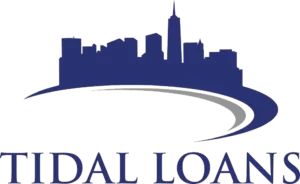The security of their assets has always been a priority for property owners. The good news is that recent advancements have created a new generation of security technologies that are having an impressive impact on how we protect buildings and their occupants.
Innovative technologies are enhancing the safety and security of real-estate investments and promising a future where security is more integrated, efficient, and responsive.
Let’s look at how technologies that include AI, cloud computing, and IoT, to name a few are changing the way we protect real estate. Whether you are an experienced real estate investor or someone investing in real estate with little experience or money, this article makes essential reading.
1. Access Control Systems
The simple lock and key have been protecting real estate for time immemorial. However, the emergence of smart access control systems could finally sound the death knell for this security mainstay.
Smart access control systems can simplify controlling building access and enhance security at the same time. Among the features and benefits of access control systems are:
- Biometric Authentication: Advanced systems can recognize fingerprints, retina scans, or facial features, ensuring only authorized individuals gain access.
- Multi-Factor Authentication: Combining traditional methods with biometric or mobile verification for added security layers.
- Remote Access: Property managers can grant or deny access remotely via smartphone apps.
- Time-Based Access: Set specific times for access, ideal for office buildings or rental properties.
- Integration with Other Systems: Can be seamlessly integrated with alarm systems, surveillance cameras, and smart home devices.
- Temporary Access Codes: Grant temporary access for visitors or service providers, which expire after a set duration.
Cutting-edge access control systems simplify one of the primary functions of security – blocking unauthorized access to real estate assets.
2. Advanced Security Camera Systems
Security cameras have evolved from producing fuzzy and grainy footage to cameras whose footage wouldn’t look out of place in a Hollywood blockbuster. Modern cameras are capable of producing HD surveillance footage and they back this up with a range of advanced features:
- High-Resolution Footage: Crystal-clear visuals capture every detail.
- Night Vision: Ensuring 24/7 monitoring, even in low light.
- Motion Detection: Sensors trigger alerts upon movement.
- Varied Field of View: Different cameras can be used to enhance coverage depending on requirements. One of the main factors to consider are bullet versus dome security cameras. Choosing the right camera for the job is essential.
- Remote Monitoring: Live footage and alerts are accessible via smartphones.
- Durability: Weatherproof designs for consistent performance.
Modern surveillance camera solutions are changing the security landscape in real estate. Further enhancements like facial recognition are also being increasingly integrated into such systems thanks to the recent advances in AI.
3. Remote Security Management
A common thread running through this article is the remote access features that most modern security components offer. For real estate owners and managers, this is a real game changer and worthy of its own section in any list of emerging technologies in real estate security.
Here are a few of the main advantages of remote security management:
- Instant Notifications: Receive real-time alerts for any security breaches, system malfunctions, or unauthorized access attempts.
- Cloud-Based Access: Store and retrieve security data from the cloud, ensuring easy access, scalability, and data backup.
- Mobile Integration: Manage security settings, view live feeds, and control access directly from smartphones or tablets, offering unparalleled convenience.
- Automated Responses: Set up automated actions in response to specific triggers, such as locking doors after detecting unauthorized access or turning on lights when motion is detected.
- Historical Data Review: Access past security logs and footage, aiding in incident investigations and ensuring accountability.
What is most striking about his list, is it only hints at the possibilities of remote security management. The rapid evolution of the underlying technologies is continuing to push the limits of what remote security management is capable of.
4. IoT: Things of Wonder
Internet of Things (IoT) devices are rapidly becoming ubiquitous across all sectors of business and society. As the uptake in their use continues to accelerate, IoT devices are playing an increasingly large role in many aspects of real estate management, including security.
To cover how IoT devices are helping with real estate security and management is an article in its own right. But here are some examples of how the emergence of IoT is helping to keep properties secure:
- Smart Home Devices: From thermostats to doorbells, these devices integrate with security systems for a cohesive experience.
- Interconnectivity of Devices: IoT devices can communicate with each other to help integrate separate systems (e.g. surveillance cameras and access control systems)
- Real-time Monitoring: Sensors and cameras provide live data, allowing for immediate response to security threats.
- Automated Responses: Devices can communicate, triggering actions like locking doors when suspicious activity is detected.
- Energy Management: Smart meters and appliances adjust usage patterns, ensuring energy efficiency while maintaining security.
Similar to remote security management, IoT can be considered a fledgling technology that will continue to revolutionize security as it evolves.
As Safe as Houses: The Real Estate Security Renaissance
Knowing where to start with real estate investment is challenging. There are always more questions than answers – Is this the right property for me? What do I need to know about hard money loans? And of course – How do I secure my property? The latest generation of emerging technologies can at least address the last question.
We are only at the start of a technological revolution, but already the rapid development of technologies like AI, cloud computing, and surveillance cameras are combining to create levels of security that existed only in the realm of science fiction a few short years ago.
The convergence of these technologies is not just about bolstering defenses; it’s about redefining the very essence of security in real estate. The promise of a future where properties are not just secure, but also intelligent and responsive, is on the horizon.


